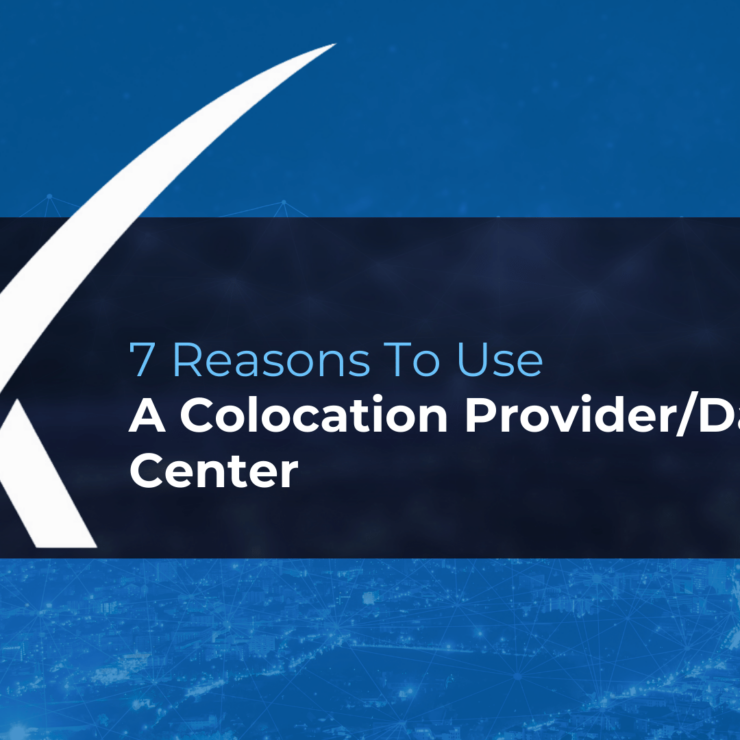7 Reasons To Use A Colocation Provider/Data Center

While using colocation services at a data center are becoming more common every day, many businesses still choose to host their services in-house. What are the top reasons a business should make the move to a local datacenter and use colocation services?
1) Design / Infrastructure: Colocation facilities are built to specific specifications and standards to meet the needs of today’s high-tech hardware. Data centers are built with conditioned power, cooling (HVAC), Generators, security systems and many other factors that can cost millions of dollars. These systems are monitored by professionals 24/7/365.
2) Risk Management: Having your data at a secure off-site location is a great way to manage your own business risks if you are hosting your primary data at your office location. Many businesses use data centers as their “disaster recovery” location so they can recover from a major event at their office.
3) Redundancy: Data centers are built with redundancy in mind. This means that most centers have N+1 redundancies built into the key infrastructure like power, cooling, bandwidth, and networking. At many standard office locations it may not even be possible to implement this type of redundancy, and when it is, the costs can be extremely high.
4) Bandwidth: Bringing in 100 mbps of bandwidth might be hard at an office location. Try bringing in a full 1 gbps or 10 gbps and it could be impos- sible. Add a redundant line from a different provider and I think you can see how the costs start to pile up. Data centers have large bandwidth pipes and they receive connections from multiple providers. This provides you many benefits for a fraction of the cost. Use the data center’s economy of scale and you will get better service for less cost in most cases.
5) Security: Data centers are built to be secure by nature. Data centers are protecting millions of dollars of hardware and have many security features built into them when the center is being designed. For example, a data center may have biometric or key card access and regulated entry into certain parts of the building. Data centers also have 24/7/365 security camera surveillance and staff on-site protecting the equipment.
6) Compliance / Certifications: Many organizations need to prove they are protecting the data they host and an audit may be required to prove this. Data centers already hold these certifications and this can save businesses thousands of dollars per year. Certifications like SSAE16 Type II, PCI, HIPAA, and Safe Harbor are just a few of the items that may be required when hosting a customer’s data.
7) Cost: Creating and managing even a small data center can be very expensive. Is it worth the expense to build your own data center when it may not be as reliable as a local colocation facility? You need to factor in the cost of not only the infrastructure but also ongoing maintenance. Also, it is hard to determine how much money you risk to lose if you are hosting in an unreliable location.